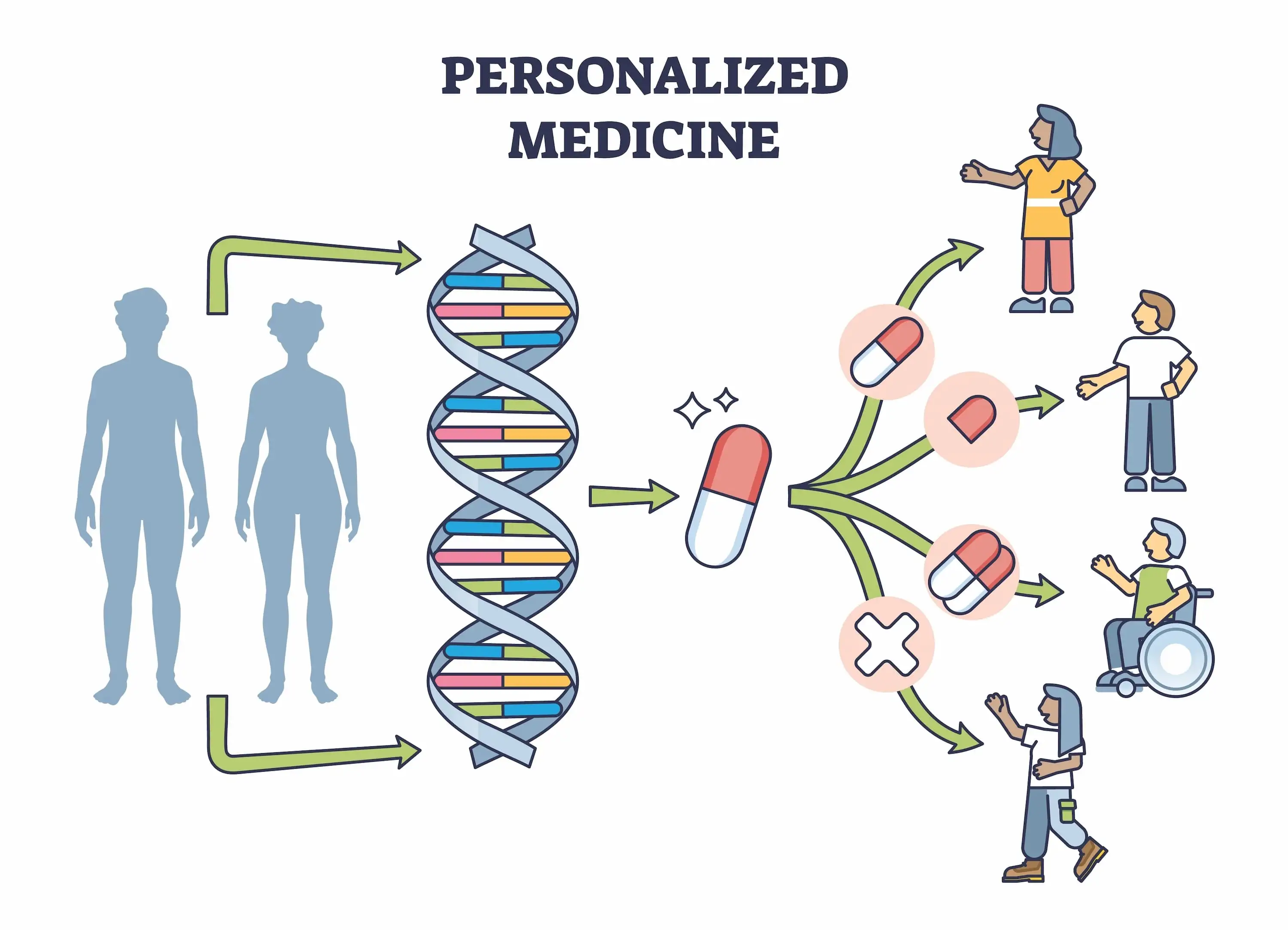What Are the Latest Breakthroughs in Personalized Medicine for Cancer Treatment?

Cancer treatment has evolved significantly in recent years, moving away from a one-size-fits-all approach toward personalized medicine. This innovative approach tailors treatment plans based on a patient’s genetic makeup, tumor characteristics, and individual response to therapies. Recent breakthroughs in personalized medicine for cancer treatment have revolutionized the way oncologists diagnose and treat various forms of cancer, leading to improved survival rates and reduced side effects. Here are some of the latest advancements in this field:
1. Genomic Profiling and Targeted Therapies
Genomic profiling has become a cornerstone of personalized cancer treatment. By sequencing a patient’s tumor DNA, doctors can identify specific genetic mutations driving the cancer and select targeted therapies that directly attack these mutations.
-
Example: The discovery of the EGFR mutation in lung cancer has led to the development of drugs like Osimertinib, which specifically target this mutation and provide more effective treatment with fewer side effects compared to traditional chemotherapy.
-
HER2-positive breast cancer treatments have been significantly enhanced by drugs like Trastuzumab (Herceptin) and Tucatinib, which target the HER2 protein responsible for aggressive tumor growth.
2. Immunotherapy Advancements
Immunotherapy, which boosts the body's immune system to fight cancer, has seen remarkable progress in personalized medicine.
-
Checkpoint inhibitors like Pembrolizumab (Keytruda) and Nivolumab (Opdivo) target proteins such as PD-1 and PD-L1, which cancer cells use to evade the immune system. These therapies have been effective in treating melanoma, lung cancer, and certain types of bladder cancer.
-
CAR-T cell therapy, a groundbreaking form of immunotherapy, involves genetically modifying a patient’s T cells to recognize and attack cancer cells. It has been particularly successful in treating certain blood cancers like acute lymphoblastic leukemia (ALL) and diffuse large B-cell lymphoma (DLBCL).
3. Liquid Biopsies for Early Detection and Monitoring
Liquid biopsies have emerged as a non-invasive method to detect cancer early and monitor treatment response.
-
These tests analyze circulating tumor DNA (ctDNA) in the blood, providing real-time information about the presence of mutations or resistance mechanisms.
-
Companies like Guardant Health and Foundation Medicine have developed liquid biopsy tests that can help detect cancer recurrence before it appears on imaging scans, allowing for earlier intervention.
4. AI and Machine Learning in Treatment Personalization
Artificial intelligence (AI) is playing a crucial role in analyzing vast amounts of patient data to recommend the most effective treatments.
-
AI-driven platforms, such as IBM Watson for Oncology, use machine learning to evaluate medical records and suggest personalized treatment options based on global clinical data.
-
AI is also being used to predict which patients are more likely to benefit from specific immunotherapies, reducing the trial-and-error approach in cancer treatment.
5. CRISPR and Gene Editing in Cancer Therapy
CRISPR (Clustered Regularly Interspaced Short Palindromic Repeats) technology is making significant strides in personalized cancer treatment.
-
Scientists are exploring the use of CRISPR-based gene editing to correct genetic mutations responsible for cancer development.
-
In a groundbreaking clinical trial, CRISPR was used to modify T cells to enhance their ability to recognize and kill cancer cells, paving the way for more effective immunotherapies.
6. Personalized Vaccines for Cancer
Unlike traditional vaccines that prevent disease, cancer vaccines are designed to stimulate the immune system to attack specific cancer cells.
-
Companies like BioNTech and Moderna are developing mRNA-based cancer vaccines that encode tumor-specific antigens, allowing the immune system to recognize and destroy cancer cells more effectively.
-
Personalized cancer vaccines are being tested in clinical trials for melanoma, lung cancer, and other tumor types, with promising early results.
7. Microbiome Influence on Cancer Treatment
Recent research suggests that gut bacteria can influence how patients respond to cancer treatments.
-
Studies have shown that patients with a healthy gut microbiome respond better to checkpoint inhibitors than those with imbalanced gut bacteria.
-
Scientists are exploring ways to modify the microbiome through probiotics or fecal microbiota transplants to enhance cancer treatment efficacy.
8. Organoids and 3D Tumor Models for Drug Testing
Traditional methods of testing cancer treatments often fail due to differences between laboratory conditions and real human biology. However, organoids—miniature, lab-grown versions of tumors—are transforming drug testing.
-
These 3D tumor models allow researchers to test multiple drug combinations on a patient’s tumor cells before selecting the most effective therapy.
-
Personalized organoid testing has been successfully used for colorectal, pancreatic, and breast cancer treatments.
9. Advances in Hormonal Therapy for Cancer
Hormonal therapy has been refined for hormone-driven cancers like breast and prostate cancer.
-
Next-generation anti-androgens like Enzalutamide and Apalutamide are providing better outcomes for prostate cancer patients by more effectively blocking androgen receptors.
-
New selective estrogen receptor degraders (SERDs) like Elacestrant are showing promise in treating estrogen receptor-positive breast cancer.
10. Nanotechnology in Drug Delivery
Nanotechnology is revolutionizing the way cancer drugs are delivered to tumors, improving their effectiveness while reducing side effects.
-
Nanoparticles can be engineered to specifically target cancer cells, ensuring that chemotherapy drugs attack only the tumor while sparing healthy tissues.
-
Lipid nanoparticles (LNPs), the technology used in COVID-19 vaccines, are now being adapted for targeted cancer therapies, offering a new frontier in precision medicine.
Conclusion
The field of personalized medicine is rapidly evolving, offering hope to millions of cancer patients worldwide. With advancements in genomic profiling, immunotherapy, AI-driven treatment recommendations, liquid biopsies, gene editing, personalized vaccines, and nanotechnology, cancer treatment is becoming more precise, effective, and less toxic. As research continues to uncover new ways to tailor therapies to individual patients, the future of cancer treatment looks more promising than ever. Personalized medicine is not just a trend—it is the future of oncology, bringing us closer to a world where cancer is not just treatable but curable.
What's Your Reaction?















.jpg)
.jpg)


